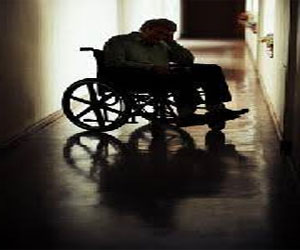- Home
- Editorial
- News
- Practice Guidelines
- Anesthesiology Guidelines
- Cancer Guidelines
- Cardiac Sciences Guidelines
- Critical Care Guidelines
- Dentistry Guidelines
- Dermatology Guidelines
- Diabetes and Endo Guidelines
- Diagnostics Guidelines
- ENT Guidelines
- Featured Practice Guidelines
- Gastroenterology Guidelines
- Geriatrics Guidelines
- Medicine Guidelines
- Nephrology Guidelines
- Neurosciences Guidelines
- Obs and Gynae Guidelines
- Ophthalmology Guidelines
- Orthopaedics Guidelines
- Paediatrics Guidelines
- Psychiatry Guidelines
- Pulmonology Guidelines
- Radiology Guidelines
- Surgery Guidelines
- Urology Guidelines
Patients of Depression and PAD comorbidity at higher risk of amputation- JVS Study

It's a DANGEROUS COMBO: JVS reports depression and leg artery disease put patients at higher risk of amputation and death. A recent research finding appearing in the Journal of Vascular Surgery concludes that people with peripheral artery disease, PAD and depression are more likely to face amputation and death due to their disease compared to other patients.
PAD affects more than 200 million people worldwide, including more than 8 million Americans, most over age 50, according to the National Institutes of Health and the Centers for Disease Control.
"Depression is an under-recognized risk factor for PAD," noted lead author Dr S. Marlene Grenon. "Our recent findings demonstrate that PAD patients with depression are at a higher risk of long-term death and amputation. It's important to better understand the effect of mental health disorders in cardiovascular diseases and find the best solutions."
Earlier research had pointed to a significant relationship between depression and PAD. Many PAD patients will find that their disease will not get much worse, but the scenario is not as rosy for those who are depressed. This latest study not only reinforces the link between depression and PAD but suggests a link to the worst outcomes.
Dr. Grenon, an Associate Clinical Professor with the University of California San Francisco and Chief Medical Officer of Evry Health, has studied and written about the link between depression and PAD.
PAD occurs when atherosclerosis, or hardening of the arteries, blocks the flow of oxygen-rich blood to the extremities, particularly the legs and feet. Patients who have been diagnosed with PAD are usually under the care of a vascular surgeon. Surgeons in this field are highly trained in treatment of circulation disorders, and treat all areas of the body, with the exception of the heart and brain.
Dr. Grenon and her fellow researchers, including Dr. Shipra Arya from Stanford University, reviewed data from 155,647 veteran patients with PAD and found that 16 percent of them had been diagnosed with depression. Other studies have found an occurrence of depression in PAD patients as high as 46 percent.
Depressed PAD patients who were not taking an anti-depressant had a 42 per cent higher risk of amputation compared to those without depression; if they were taking medication for depression, their risk was lower but still represented a 10 per cent higher risk of amputation compared to those patients without depression.
If depression is one cause of PAD, why would that occur? Previous research on patients with coronary artery disease and depression suggests that perhaps stress sets off a chemical chain reaction of hormones – such as cortisol and adrenalin – that could affect the immune system and blood coagulation. If that happens in combination with other risk factors, such as cigarette smoking, diabetes, lack of activity or failure to take medications, the risk of complications may increase.
That may only be part of the equation, however. In an article Dr Grenon recently co-wrote with Dr. Joel L. Ramirez, the authors point out that other researchers have found that the relationship between PAD and depression may go both ways, one may affect the other. (McDermott et al. 2016), "Although the directionality of this relationship remains unclear," they wrote, "the evidence linking these two diseases is undeniable."
As a standard practice, vascular surgeons may not ask about depression when patients are first seen, but Dr. Grenon strongly believes that diagnosis and treatment of depression in PAD patients is paramount to treating the whole patient.
"We still have so much to learn about the relationship between PAD and depression, but there is definitely something there. In fact, I believe that depression and stress can impact several other chronic diseases," Dr. Grenon said. "There is a need to screen and address behavioral health issues in our patients because it can impact their response to treatment as well as their quality of life, their work and their loved ones. New approaches are being sought through digital health for example that may offer good solutions, particularly as we consider our fast pace of life. We need now to look at all this data and see where to go next to address this rising population health concern."

Disclaimer: This site is primarily intended for healthcare professionals. Any content/information on this website does not replace the advice of medical and/or health professionals and should not be construed as medical/diagnostic advice/endorsement or prescription. Use of this site is subject to our terms of use, privacy policy, advertisement policy. © 2020 Minerva Medical Treatment Pvt Ltd